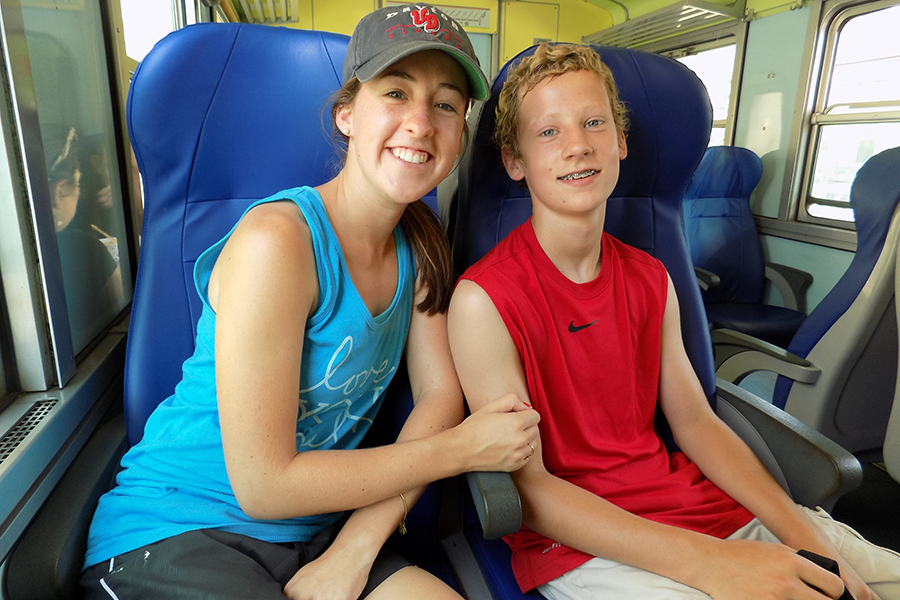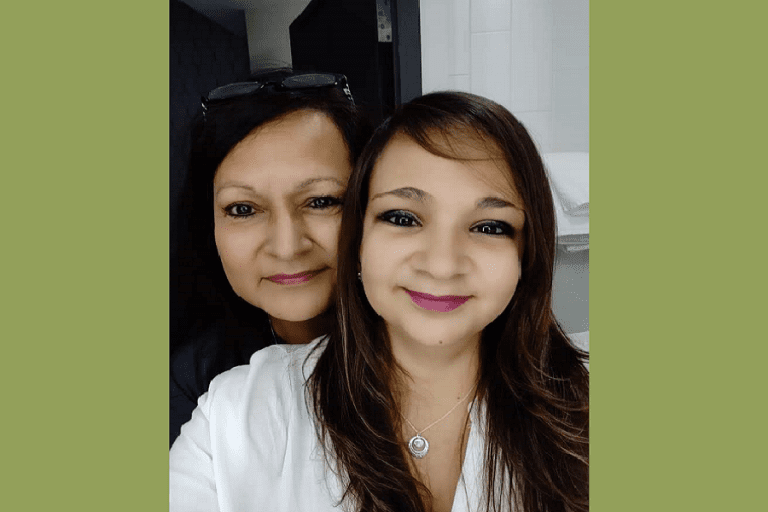Kaitlyn is the sibling of childhood cancer survivor, Luke. He was diagnosed with osteosarcoma, bone cancer, when he was 8 years old. Kaitlyn is the oldest of four siblings and is pursuing a career in child family life. She shared a glimpse of what her experience was like.
What was the hardest thing to watch your brother endure?
Right at the beginning, he was in a body cast and couldn’t move on his own. My mom told me not to cry in front of him. It was hard to feel so sad and not be able to show it.
How did your family get through it together?
My parents put Luke’s big bed in the front living room. After school, we’d all pile on the bed with him and play Xbox or watch a movie. We also had a Korean exchange student at the time who was awesome and hysterical. He’d rub the top of Luke’s head.
What would you say to other siblings going through a cancer diagnosis right now?
It’s not always fun, and it’s usually really, really scary, but it’s important not to drop the things you love: playing sports, making friends — it all helps make life feel normal. Don’t feel guilty, because ultimately you have to take care of yourself just as much as your sibling.
Do you know a sibling of a childhood cancer survivor?
We support Sibshops at the University of Minnesota Masonic Children’s Hospital.
Attend the next Sibshops coming up this Saturday, August 13 at 9 a.m.! Siblings from kindergarten through 12 years of age ,who have brothers or sisters with medical needs, can join this fun monthly event for free in the University of Minnesota Masonic Children’s Hospital lobby. Click to register.
Sibshops are best described as “opportunities for brothers and sisters of children with special healthcare needs to obtain peer support and education within a recreational context. Sibshops are lively celebrations of the many contributions made by brothers and sisters of kids with extensive needs. The Sibshops model intersperses information and discussion activities with new games and activities that encourage and facilitate peer support.”




